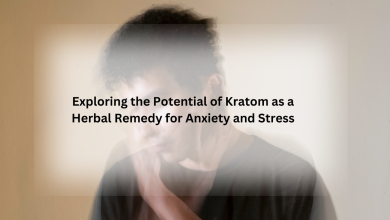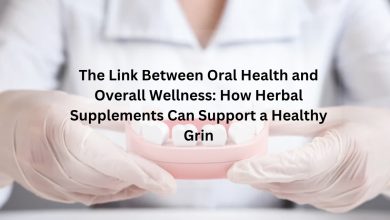Expert Suggestions for Holistic Well-Being and a Healthy Lifestyle

Are you looking to improve your overall well-being and lead a healthy lifestyle? If so, you’re in luck! We share five expert-suggested diet and lifestyle habits for holistic well-being. You can immediately start improving your health, vitality, and happiness by making small, manageable changes to your daily routine and dietary choices. So get ready to take charge of your health and discover the power of leading a healthy lifestyle!
What is Holistic Well-Being, and Why is it Important?
Holistic well-being is a term used to describe the complete and total balance of mind, body, and soul. It integrates various elements that affect an individual’s health, such as physical, mental, emotional, and spiritual factors. Achieving a state of holistic well-being means that every aspect of your life is in sync, leading to optimal health and wellness.
Living a holistic lifestyle means making conscious choices about your overall well-being rather than simply focusing on one aspect of your health. It is essential to recognize that your health is interconnected, and changes in one area of your life can positively or negatively affect others.
Holistic well-being is important because it helps individuals create and maintain a balanced and fulfilling life. This, in turn, leads to a sense of happiness, purpose, and overall satisfaction. Focusing on a holistic lifestyle can create habits that improve your physical, emotional, and spiritual well-being.
Moreover, when your body, mind, and spirit are balanced, you can better handle stress, boost your immune system, and reduce your risk of chronic diseases. A holistic approach to wellness enables you to take control of your health, which is crucial to maintaining a happy and healthy life.
Healthy Eating Habits for Holistic Well Being
As the old saying goes, “you are what you eat.” Healthy eating habits are crucial for holistic well-being. A balanced diet can provide the necessary nutrients for optimal physical and mental health.
- Eat Whole Foods: A whole-food diet includes fruits, vegetables, nuts, seeds, legumes, and whole grains. These foods contain nutrients that can help reduce inflammation, boost energy levels, and support healthy brain function.
- Avoid Processed Foods: Processed foods are often loaded with additives, unhealthy fats, and added sugars that can harm your body. Instead, opt for whole, natural foods.
- Practice Mindful Eating: Mindful eating is paying attention to your food, savouring every bite, and listening to your body’s hunger and fullness signals. This practice can help reduce overeating and promote healthier eating habits.
- Stay Hydrated: Drinking enough water is crucial for overall health. Aim for at least eight glasses of water daily to stay hydrated and flush toxins out of your body.
- Limit Alcohol and Caffeine: Alcohol and caffeine can interfere with sleep and contribute to anxiety and depression. Limit your intake or choose healthier alternatives like herbal teas or fruit-infused water.
Incorporating these healthy eating habits into your lifestyle can improve overall health and well-being.
Exercise and Movement for a Healthy Lifestyle
Maintaining a healthy and active lifestyle is essential for holistic well-being. Exercise and movement are crucial in improving our physical and mental health. It not only helps in weight management but also helps to boost our mood and improve cognitive function.
The World Health Organization recommends 150 minutes of moderate-intensity exercise per week, and it is recommended to include strength training exercises twice a week. Physical activity, such as jogging, cycling, swimming, or walking, can help you stay active.
Apart from structured exercises, including movement throughout your day is essential. Sitting for long hours can have a detrimental effect on our health. Getting up and moving around, stretching your muscles, and keeping your body active is essential.
Incorporating exercises and movement into your daily routine can be challenging. However, setting realistic goals and minor Healthy Lifestyle changes can help. You can take the stairs instead of the elevator, walk or cycle instead of driving, or join a fitness class to stay motivated.
Exercise and movement are not just essential for physical health, but it also has numerous mental health benefits. Regular exercise can help reduce stress, anxiety, and depression and improve mood and overall quality of life.
Mindfulness and Mental Health Strategies for Holistic Well Being
Achieving holistic well-being also means taking care of our mental health. One way to do this is by practising mindfulness, which involves being fully present and aware of the current moment without judgment.
There are several ways to incorporate mindfulness into your daily life. One is through meditation, which involves sitting quietly and focusing on your breath or a specific mantra. You can also practice mindfulness during everyday activities, such as washing dishes or walking, by fully focusing on the sensations and experiences.
Another essential mental health aspect is developing coping strategies for difficult emotions and situations. It can involve talking to a therapist or counsellor, practising self-care activities such as taking a relaxing bath or spending time in nature, or journaling to express your thoughts and feelings.
Finally, it’s essential to prioritize connection and social support. It can mean spending time with loved ones, joining a group or club with similar interests, or volunteering in your community. We can achieve holistic well-being by taking care of our mental health and developing positive coping strategies.
The Importance of Sleep and Rest for Holistic Well Being
Getting adequate sleep and rest is as essential as eating well and exercising when achieving holistic well-being. Health experts argue it is the most critical factor in maintaining good physical and mental health.
Sleep is when our body restores, repairs tissues, and strengthens the immune system. We can become more prone to illness without sufficient rest, and our mental health can suffer.
- To improve your sleep and rest:
- Try to create a bedtime routine that you can follow consistently.
- Make sure your sleeping environment is comfortable, relaxed, and dark.
Avoid using electronic devices before bed, and limit caffeine and alcohol consumption in the evening.
Additionally, take regular breaks throughout the day to rest and recharge. It can include taking a short walk, practising deep breathing exercises, or simply sitting quietly and allowing your mind and body to relax.
By prioritizing sleep and rest as a critical component of your holistic well-being, you can enhance your physical and mental health and enjoy greater vitality and wellness.





